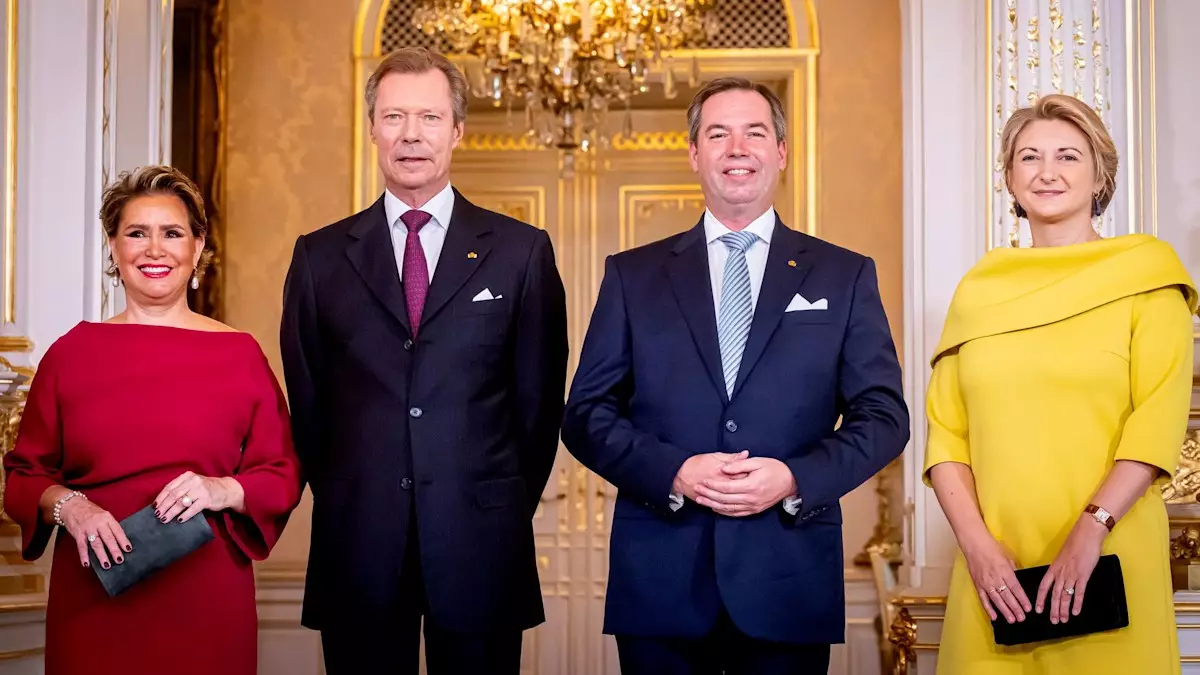Tuesday will be remembered as a pivotal moment in the history of the Luxembourg royal family. Grand Duke Henri has bestowed upon his eldest son, Prince Guillaume, the title of Lieutenant-Representative. This inauguration not only symbolizes a rite of passage within the royal lineage but is also a strategic move in preparation for the Grand Duke’s eventual abdication. The ceremony harkens back to 1998 when Henri himself was designated as Lieutenant-Representative by his father, Grand Duke Jean, setting a precedent for royal succession and duties.
This transition is not merely ceremonial; it signifies the beginning of a new era in Luxembourg’s monarchy—one that is poised to impact both the institution and its public perception. As the Grand Duke approaches his 70th birthday and the 25th anniversary of his reign in 2025, anticipation builds around the timeline for his abdication. His recent statement, “It won’t take forever,” hints at a future marked by change, underscoring the evolving dynamics within the royal family.
Responsibilities and Expectations for the Future Grand Duke
With the title of Lieutenant-Representative comes a heightened level of responsibility for Prince Guillaume. From endorsing legal documents to participating in state affairs, his new role requires a deft balance of tradition and modernity. Grand Duke Henri has expressed his desire to ease his burdens, stating, “I really want to give Prince Guillaume a lot more responsibility because I think I really need to slow down.” This acknowledgment of generational change emphasizes the necessity for royal figures to adapt to contemporary governance while still honoring age-old traditions.
Guillaume’s marriage to Stephanie de Lannoy in 2012 added another dimension to his public role, as they raise their two young sons, Prince Charles and Prince François. Their family dynamics serve not just as a personal narrative but also as an important aspect of the public’s connection to the monarchy. Such relatable representations may help solidify public support for the royal family, ensuring that their relevance endures amid shifting societal values.
The Royal Family’s Future Home and Legacy
In anticipation of Guillaume’s ascension to the title of Grand Duke, preparations are underway for the royal family’s future. Reports indicate that a privately funded extension is being constructed at Berg Castle, his anticipated residence as Grand Duke. Simultaneously, Grand Duke Henri and Grand Duchess Maria Teresa are set to relocate to Fischbach Castle, reflecting a thoughtful reallocation of royal spaces in light of this transition.
The familial structure remains strong, with Henri and Maria Teresa raising not only Prince Guillaume but also their other children—Prince Felix, Prince Louis, Princess Alexandra, and Prince Sebastien—as well as welcoming eight grandchildren into the fold. The birth of the latest granddaughter, Victoire, in May adds a joyful note to this period of change, reminding the public that even amidst transitions, familial bonds remain the heart of the monarchy.
As Luxembourg stands on the cusp of a significant royal transition, the actions taken by Grand Duke Henri position the monarchy for a future that honors both tradition and innovation. The embrace of leadership by Prince Guillaume reflects a conscientious approach to monarchy in the modern age, balancing responsibilities with the rich legacy of the Grand Ducal family. The unfolding narrative will undoubtedly captivate the Luxembourgish people and solidify the royal family’s place in the hearts of its citizens for generations to come.

